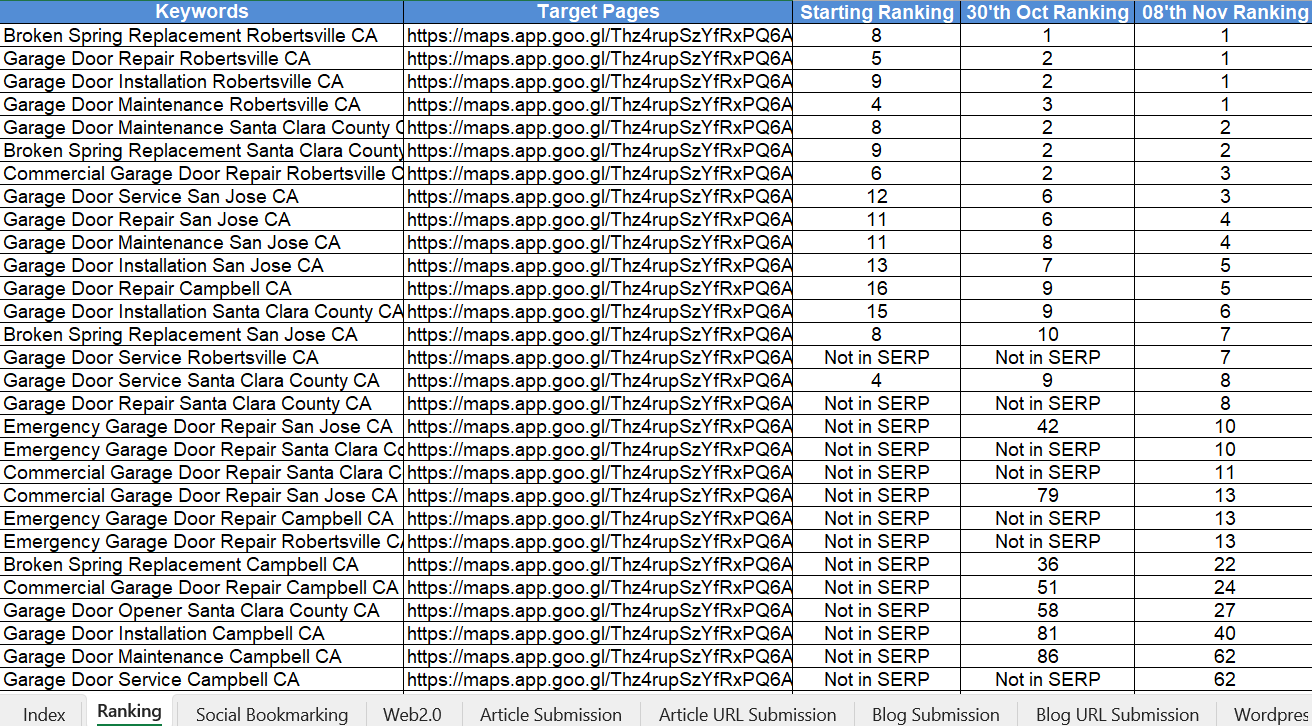Ads on Zillow: Maximize Your Real Estate Marketing
The Ultimate Guide to Zillow Advertising
Embark on a magical journey to master Zillow Advertising and unlock the secrets to elevating your real estate marketing strategy.
Introduction

Imagine walking through a grand, enchanted forest where every tree and path holds a promise of discovery. In the realm of real estate, Zillow Advertising serves as your map and compass, guiding you to the hidden treasures of high-value leads and successful property sales. This ultimate guide is your key to navigating the mystical world of Zillow Advertising, transforming your marketing efforts into a spellbinding success.
Whether you're a seasoned real estate sorcerer or a budding agent seeking to cast your first marketing spells, understanding the nuances of Zillow Advertising will empower you to reach your target audience with precision and allure. From free ads that lay the foundation to Premier Agent advertising that crowns your efforts with prestige, this guide covers every facet you need to conjure effective campaigns.
In this guide, we will explore the various advertising options Zillow offers, delve into the costs associated with each, and provide actionable strategies to maximize your return on investment. We'll also address common questions and concerns, ensuring that by the end of this journey, you are well-equipped to harness the full power of Zillow Advertising.
Can You Advertise on Zillow?
Absolutely! Zillow is one of the most prominent real estate platforms, offering a plethora of advertising options tailored to meet the diverse needs of agents and property owners. Whether you're looking to promote a single listing or establish a strong brand presence, Zillow provides the tools and platforms to make your advertisements shine. But like any potent magic, understanding the right incantations—keywords, visuals, and strategies—is essential to harness Zillow's full potential.
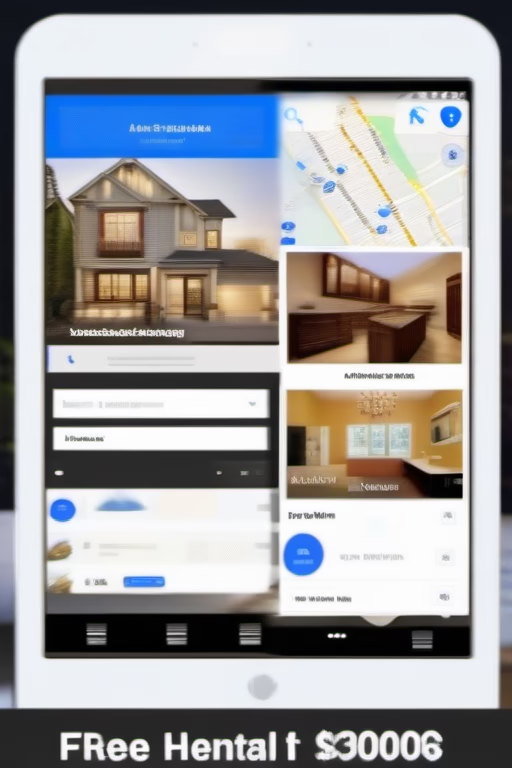
Zillow Advertising is designed to cater to a wide range of real estate professionals, from individual agents to large brokerages. By leveraging Zillow's robust advertising solutions, you can reach a vast audience of potential buyers and renters, enhance your online visibility, and ultimately, close more deals.
Understanding Zillow's Advertising Ecosystem
Zillow's advertising ecosystem is a dynamic blend of various tools and services that work in harmony to provide comprehensive marketing solutions. Here's a closer look at the key components:
- Listings: The cornerstone of Zillow Advertising, listings allow you to showcase properties with detailed information, high-quality images, and interactive features like virtual tours.
- Premier Agent: A premium service offering enhanced visibility, lead generation tools, and advanced marketing features designed to elevate your real estate business.
- Pay-Per-Click (PPC) Ads: Targeted advertising where you pay only when users interact with your ads, providing flexibility and control over your advertising spend.
- Rental Advertising: Specialized advertising solutions for property owners and managers looking to rent out properties efficiently.
- Analytics Tools: Comprehensive analytics and reporting features that provide insights into ad performance, helping you make data-driven decisions.
Each component of Zillow's advertising ecosystem is designed to address specific marketing needs, ensuring that whether you're promoting a residential home, a commercial property, or a rental listing, Zillow has the right tools to support your goals.
Free Ads on Zillow
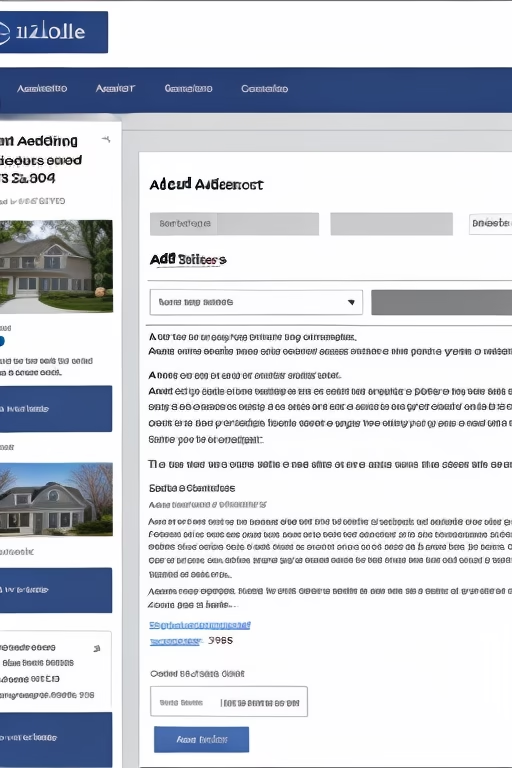
Think of free ads on Zillow as the basic charms in your marketing spellbook—fundamental yet powerful. These ads allow you to list your properties without incurring any costs, providing a perfect starting point for agents new to the platform or those operating on a tight budget.
How to Create Free Ads on Zillow
Creating free ads is as simple as waving a wand. By setting up a basic Zillow profile, you can list your properties, upload photos, and provide essential details. Here’s a step-by-step guide to getting started:
- Create a Zillow Account: If you don't already have one, sign up for a free Zillow account. This will serve as the foundation for all your advertising activities.
- Claim Your Listing: Once your account is set up, navigate to the "Manage Listings" section and claim your property. If your property isn't already listed, you can add a new listing manually.
- Fill in Property Details: Provide comprehensive information about your property, including the address, price, number of bedrooms and bathrooms, square footage, and any unique features.
- Upload High-Quality Photos: Visual appeal is paramount. Upload clear, high-resolution images that showcase the property's best aspects. Remember, first impressions matter!
- Write an Engaging Description: Craft a compelling narrative that highlights the unique selling points of your property. Use descriptive language to paint a vivid picture for potential buyers.
- Publish Your Ad: Review all the information for accuracy and completeness, then publish your free ad. Your property will now be visible to millions of Zillow users worldwide.
Benefits of Free Ads
- Cost-Effective Marketing Solution: As the name suggests, free ads eliminate the need for upfront advertising expenses, making it accessible for all agents.
- Ideal for New Listings and Agents: Whether you're just starting out or listing your first property, free ads provide an excellent platform to gain initial traction.
- Accessible to All Zillow Users: Free ads are available to anyone with a Zillow account, ensuring wide exposure across the platform.
- Basic Exposure to Potential Buyers: Even without premium features, free ads can attract interested buyers who are actively searching for properties.
Enhancing the Effectiveness of Free Ads
While free ads are a fantastic starting point, leveraging them alongside strategic paid options can amplify your reach and effectiveness in the competitive real estate market. Here are some tips to enhance the performance of your free Zillow ads:
- Optimize Your Listing: Ensure that all property details are accurate and comprehensive. Complete listings tend to perform better in search results.
- Use High-Quality Photos: Invest in professional photography to showcase your property in the best light. Clear and attractive images can significantly increase interest.
- Regularly Update Your Listing: Keep your listing information current to maintain its relevance and attractiveness to potential buyers.
- Promote Your Listing: Share your free Zillow ads on your social media channels, website, and email newsletters to increase visibility.
- Engage with Interested Buyers: Promptly respond to inquiries and provide additional information as needed to nurture leads generated through your free ads.
Limitations of Free Ads
- Limited Visibility: Free ads may not appear as prominently in search results compared to paid options like Premier Agent advertising.
- Basic Features: Advanced features such as virtual tours, premium placements, and detailed analytics are typically reserved for paid advertising options.
- Competitive Market: In highly competitive markets, free ads may struggle to stand out amidst a multitude of listings.
To overcome these limitations, consider supplementing free ads with targeted paid advertising strategies, ensuring that your properties receive the attention they deserve.
Best Ads on Zillow
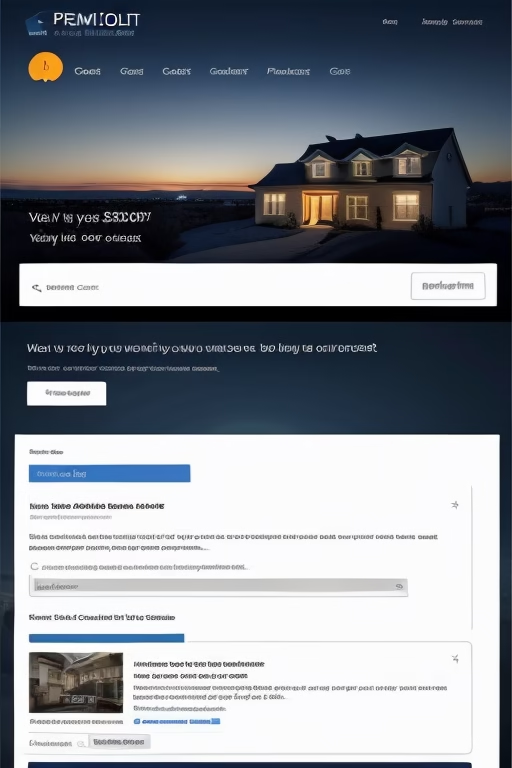
Crafting the best ads on Zillow is akin to creating the most potent potions—meticulously balanced with the right ingredients to produce enchanting results. These ads combine compelling visuals, targeted messaging, and strategic placement to captivate your audience and drive meaningful engagement.
Key Elements of the Best Zillow Ads
- High-Quality Images: Showcase your property with stunning photography that highlights its unique features. Invest in professional photography to ensure your listings stand out.
- Engaging Descriptions: Use vivid, descriptive language to paint a picture of the lifestyle your property offers. Highlight key amenities, architectural details, and any recent renovations.
- Targeted Keywords: Incorporate relevant keywords throughout your ad to enhance searchability. Phrases like "luxury home in [Location]" or "spacious family residence" can improve your ad's visibility.
- Clear Call-to-Action: Encourage potential buyers to take the next step, whether it's scheduling a viewing, contacting you for more information, or visiting your website.
- Virtual Tours and Videos: Providing virtual tours or video walkthroughs can significantly increase engagement by allowing buyers to explore the property remotely.
- Testimonials and Reviews: Including testimonials from satisfied clients can add credibility and trust to your ads, making potential buyers more inclined to reach out.
Advanced Features to Enhance Your Ads
To truly create the best ads on Zillow, consider utilizing advanced features that can elevate your listings:
- 3D Home Tours: Zillow offers 3D Home Tours, allowing buyers to navigate through your property virtually. This immersive experience can set your ad apart from others.
- Premium Placements: Invest in premium placements to ensure your ads appear at the top of search results, increasing visibility and attracting more clicks.
- Interactive Maps: Highlight the property's location with interactive maps that showcase nearby amenities, schools, and points of interest.
- Lead Capture Forms: Integrate lead capture forms directly into your ads to collect contact information from interested buyers, streamlining the follow-up process.
Crafting Compelling Property Descriptions
The description of your property is where you can weave a narrative that captivates potential buyers. Here are some tips to craft compelling descriptions:
- Start with a Strong Opening: Capture attention from the first sentence. Highlight a unique feature or the overall vibe of the property.
- Be Descriptive Yet Concise: Use vivid language to describe the property, but avoid unnecessary fluff. Aim for clarity and impact.
- Highlight Unique Selling Points: Focus on what makes your property stand out, such as custom finishes, expansive gardens, or state-of-the-art appliances.
- Incorporate Lifestyle Elements: Describe the lifestyle that comes with the property. Mention nearby attractions, community amenities, and the overall atmosphere of the neighborhood.
- Use Bullet Points for Features: For ease of reading, use bullet points to list key features and amenities. This makes the information easily digestible.
- Include a Call-to-Action: Encourage readers to take the next step, whether it's scheduling a tour or contacting you for more details.
Utilizing Zillow's Advertising Tools
Zillow offers a suite of advertising tools designed to enhance your marketing efforts. Here's how you can leverage these tools to create the best ads:
- Zillow Photo Gallery: Ensure your photo gallery is well-organized and features high-quality images. Highlight different areas of the property to give a comprehensive view.
- Zillow Virtual Tours: Offer virtual tours to provide an immersive experience for potential buyers. This feature is particularly beneficial for out-of-town buyers who may not be able to visit in person.
- Zillow Home Stories: Create Home Stories to showcase the property through a narrative format, incorporating images, videos, and text to tell a compelling story.
- Zillow Mortgage Tools: Integrate mortgage calculators and other financial tools to help buyers understand the affordability of your property, enhancing their engagement with your listing.
- Zillow Lead Generation: Use Zillow's lead generation features to capture contact information from interested buyers, enabling you to follow up and nurture leads effectively.
Case Study: Transforming Listings with Best Practices
To illustrate the impact of creating the best ads on Zillow, consider the case of John Smith, a real estate agent in a competitive suburban market:
- Initial Challenge: John was struggling to generate leads and close sales due to the high competition in his area. His listings were buried among numerous other properties, making it difficult for potential buyers to notice his offerings.
- Implementation of Best Practices: John revamped his Zillow ads by investing in professional photography, crafting engaging property descriptions, and utilizing advanced features like virtual tours and premium placements.
- Results:
- Increased Visibility: With premium placements and high-quality visuals, John's listings began to appear prominently in search results, attracting more views.
- Higher Engagement: The inclusion of virtual tours and detailed descriptions kept potential buyers engaged, leading to more inquiries and showings.
- Lead Generation: Enhanced lead capture forms and timely follow-ups resulted in a significant increase in qualified leads.
- Sales Growth: John experienced a 40% increase in closed sales within six months, demonstrating the effectiveness of implementing best advertising practices on Zillow.
John's success underscores the importance of investing time and resources into creating the best ads on Zillow. By focusing on quality, engagement, and strategic placement, you too can achieve remarkable results in your real estate marketing efforts.
Zillow Advertising Cost
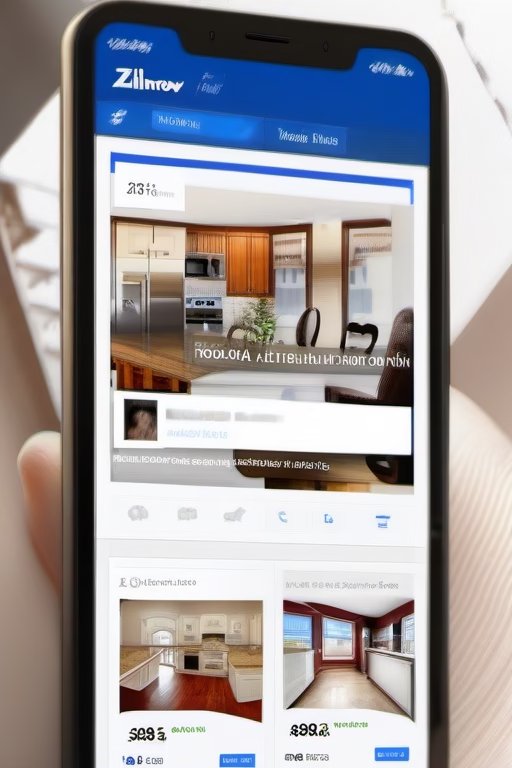
Understanding Zillow advertising cost is crucial for budgeting and maximizing your return on investment. Zillow offers a range of pricing options tailored to different needs and budgets, ensuring that every agent can find a plan that aligns with their marketing goals.
Factors Influencing Zillow Advertising Cost
- Ad Type: Whether you choose free ads, Premier Agent advertising, or targeted PPC campaigns, each comes with its own pricing structure. Premium options like Premier Agent typically involve higher costs but offer enhanced visibility and lead generation capabilities.
- Geographical Location: Advertising costs can vary based on the competitiveness of the real estate market in your area. High-demand regions may require a higher budget to achieve optimal visibility and reach a larger audience.
- Duration and Frequency: The length of your advertising campaign and how frequently your ads are displayed will impact overall costs. Longer campaigns and higher frequency typically incur higher costs but can lead to sustained visibility and lead generation.
- Additional Features: Enhanced features like video tours, virtual staging, and premium placement can increase the cost but also boost ad performance significantly. These features can make your listings more attractive and engaging to potential buyers.
- Target Audience: The specificity of your target audience can affect pricing. More targeted campaigns aimed at niche demographics may require a higher budget to reach effectively, but they can also yield higher-quality leads.
- Seasonality: Real estate advertising costs can fluctuate based on seasonal demand. Advertising during peak seasons may require a higher budget due to increased competition.
Typical Pricing Models
Zillow offers both fixed pricing and performance-based models, catering to different advertising needs:
- Free Ads: As discussed earlier, free ads are cost-effective but offer limited visibility compared to paid options.
- Zillow Premier Agent: This is a subscription-based service with pricing that varies based on the market and the level of exposure desired. Premier Agents pay a monthly fee for enhanced visibility, access to exclusive leads, and advanced marketing tools.
- Pay-Per-Click (PPC) Advertising: In this model, you set a budget and pay only when users click on your ads. This allows for flexible spending and can be highly cost-effective if managed properly. PPC campaigns can be customized based on your target demographics and geographic areas, ensuring that your ads reach the right audience.
- Customized Packages: For larger brokerages or agents with specific needs, Zillow offers customized advertising packages that combine various features and services tailored to your objectives. These packages can include a mix of premium placements, advanced analytics, and additional marketing tools to create a comprehensive advertising strategy.
Maximizing Your Advertising Budget
To get the most out of your Zillow advertising budget, consider the following strategies:
- Define Clear Objectives: Know what you want to achieve with your ads—whether it's brand awareness, lead generation, or direct sales. Clear goals will help you choose the right advertising options and allocate your budget effectively.
- Target Wisely: Use Zillow's targeting options to reach the most relevant audience for your properties. Narrowing down your target can reduce wasted spend and increase ad efficiency.
- Optimize Ad Performance: Regularly monitor your ad performance and make necessary adjustments. Testing different ad creatives, messages, and placements can help identify what works best for your audience.
- Leverage Analytics: Utilize Zillow's analytics tools to track key performance indicators (KPIs) such as click-through rates, conversion rates, and cost per lead. Data-driven insights can inform your advertising strategy and improve ROI.
- Combine Free and Paid Ads: Use free ads to maintain a presence on Zillow while investing in paid options to boost visibility and reach. This balanced approach can provide both sustained exposure and targeted impact.
- Seasonal Adjustments: Adjust your advertising budget based on seasonal trends. Investing more during peak seasons can capitalize on higher buyer activity and increased visibility.
- Negotiate Rates: Don't hesitate to negotiate advertising rates, especially if you're committing to long-term campaigns or high-volume advertising. Negotiating can lead to better rates and more value for your investment.
Case Study: Optimizing Advertising Costs for Maximum ROI
Consider the case of Emily Johnson, a real estate agent in a thriving metropolitan area:
- Initial Challenge: Emily was facing high advertising costs with minimal returns. Her campaigns were not generating the desired number of leads, leading to inefficient use of her marketing budget.
- Strategy Implementation: Emily decided to reassess her advertising strategy by:
- Defining clear objectives focused on lead generation and brand awareness.
- Optimizing her target audience using Zillow's demographic and geographic filters.
- Conducting A/B testing on different ad creatives and messages to identify the most effective combinations.
- Leveraging Zillow's analytics tools to monitor ad performance in real-time.
- Balancing her budget between free ads for brand presence and paid PPC campaigns for targeted lead generation.
- Results:
- Cost Efficiency: By optimizing her targeting and ad creatives, Emily reduced her cost per lead by 30%.
- Increased Lead Generation: The optimized PPC campaigns resulted in a 50% increase in qualified leads.
- Enhanced ROI: With lower advertising costs and higher lead quality, Emily saw a significant improvement in her return on investment, leading to increased sales and revenue.
Emily's story highlights the importance of strategic planning and continuous optimization in managing Zillow advertising costs. By focusing on efficiency and effectiveness, agents can achieve remarkable results without overspending.
Zillow Advertising Login

Accessing your Zillow advertising dashboard is the gateway to managing your campaigns and tracking their performance. The Zillow advertising login process is straightforward, ensuring that agents can focus on their marketing strategies without technical hurdles.
Steps to Log In to Zillow Advertising
- Navigate to the Zillow Login Page: Visit the Zillow Login Page.
- Enter Your Credentials: Input your registered email address and password. Ensure that your credentials are entered correctly to avoid login issues.
- Access Your Dashboard: Once logged in, navigate to the "Advertising" section from your dashboard. This is where you can manage all your advertising campaigns, view analytics, and adjust settings as needed.
- Start Managing Your Ads: From the advertising dashboard, you can create new ads, monitor existing campaigns, and access Zillow's suite of marketing tools.
Troubleshooting Login Issues
If you encounter issues during the login process, consider the following steps to resolve common problems:
- Check Your Credentials: Ensure that your email and password are entered correctly. Pay attention to capitalization and special characters.
- Reset Your Password: If you've forgotten your password, use the "Forgot Password" feature to reset it. Follow the instructions sent to your registered email address.
- Clear Browser Cache and Cookies: Sometimes, browser cache and cookies can cause login issues. Clearing them or trying to log in using an incognito window may help.
- Update Your Browser: Ensure that you're using the latest version of your web browser. Outdated browsers may have compatibility issues with Zillow's platform.
- Contact Zillow Support: If problems persist, reach out to Zillow's customer support for further assistance. They can help troubleshoot more complex issues and ensure you regain access to your advertising dashboard.
Ensuring Account Security
Maintaining the security of your Zillow Advertising account is paramount. Here are some best practices to keep your account safe:
- Use Strong Passwords: Create complex passwords that include a mix of letters, numbers, and special characters. Avoid using easily guessable information like birthdays or common words.
- Enable Two-Factor Authentication (2FA):strong> If available, enable 2FA for an added layer of security. This requires a second form of verification in addition to your password.
- Regularly Update Passwords: Change your passwords periodically to minimize the risk of unauthorized access.
- Monitor Account Activity: Keep an eye on your account activity for any suspicious actions. If you notice anything unusual, contact Zillow support immediately.
By following these steps and best practices, you can ensure that your Zillow Advertising account remains secure, allowing you to focus on creating effective marketing campaigns without worry.
Zillow Premier Agent Advertising

Entering the realm of Zillow Premier Agent advertising is like being bestowed with a magic wand—granting you enhanced visibility and exclusive tools to captivate high-end buyers. Premier Agent advertising is designed for agents who seek to maximize their presence on Zillow, offering a suite of premium features that elevate your marketing efforts.
Benefits of Zillow Premier Agent Advertising
- Increased Visibility: Your profile and listings gain prime placement on Zillow, ensuring they catch the eye of potential buyers. This enhanced visibility can lead to a higher number of inquiries and faster sales cycles.
- Lead Generation: Access to a steady stream of qualified leads through Zillow's robust user base. Premier Agents receive notifications about interested buyers, allowing for timely follow-ups and increased conversion rates.
- Advanced Tools: Utilize exclusive features like personalized websites, CRM integrations, and detailed analytics to refine your marketing strategies. These tools provide valuable insights into your campaign performance, enabling data-driven decision-making.
- Brand Recognition: Establish yourself as a top agent within your market, building trust and credibility with clients. Premier Agent badges and endorsements further enhance your professional image, making you a preferred choice among Zillow users.
- Dedicated Support: Premier Agents often receive dedicated support from Zillow, ensuring that any issues or questions are addressed promptly and effectively. This support can include personalized consultations, technical assistance, and marketing guidance.
How to Become a Zillow Premier Agent
Becoming a Premier Agent is a straightforward process, akin to enrolling in an exclusive academy for real estate excellence:
- Navigate to the Zillow Premier Agent Page: Visit the Zillow Premier Agent page to begin the registration process.
- Select Your Desired Market: Choose the geographical area where you want to advertise. Zillow allows you to select specific cities, neighborhoods, or regions to target your ads effectively.
- Choose a Premier Agent Package: Zillow offers various Premier Agent packages tailored to different needs and budgets. Review the features and benefits of each package to determine which aligns best with your marketing goals.
- Complete the Registration Process: Provide necessary information, including your contact details, real estate license information, and payment method. Ensure all information is accurate to facilitate a smooth onboarding process.
- Set Up Your Premier Agent Profile: Once registered, customize your Premier Agent profile with professional photos, detailed bio, and links to your website or social media profiles. A well-crafted profile enhances your credibility and attracts more leads.
- Start Utilizing Premier Agent Features: Begin leveraging the premium features, such as enhanced listing visibility, lead notifications, and advanced analytics, to optimize your advertising campaigns and maximize your reach.
Maximizing the Benefits of Premier Agent Advertising
To truly harness the power of Zillow Premier Agent advertising, consider the following strategies:
- Optimize Your Profile: Ensure that your Premier Agent profile is complete and showcases your expertise, experience, and unique value propositions. High-quality photos and a compelling bio can make a significant difference.
- Engage Promptly with Leads: Timely follow-ups with leads are crucial. Use Zillow's lead management tools to stay organized and respond to inquiries promptly, increasing the likelihood of converting leads into clients.
- Utilize Advanced Analytics: Monitor your ad performance using Zillow's analytics tools. Analyze metrics such as lead volume, conversion rates, and ad engagement to identify areas for improvement and optimize your campaigns accordingly.
- Leverage Zillow's Marketing Tools: Take advantage of additional marketing tools and resources offered to Premier Agents, such as email marketing integrations, CRM systems, and personalized marketing consultations.
- Maintain Consistent Branding: Ensure that your branding is consistent across all platforms, including your Zillow profile, website, and social media channels. Consistent branding reinforces your professional image and builds trust with potential clients.
- Participate in Zillow Events: Engage with Zillow-hosted events, webinars, and workshops to stay updated on the latest advertising trends and network with other real estate professionals.
- Solicit Reviews and Testimonials: Encourage satisfied clients to leave positive reviews on your Zillow profile. Testimonials can enhance your credibility and attract more potential buyers.
Case Study: Success with Premier Agent Advertising
To illustrate the transformative impact of Zillow Premier Agent advertising, consider the case of Jane Doe, a real estate agent in a competitive metropolitan area:
- Initial Challenge: Jane was struggling to gain visibility in a saturated market, resulting in limited lead generation and slow sales growth.
- Implementation of Premier Agent Advertising: Jane invested in Zillow Premier Agent advertising, selecting a comprehensive package that included premium placements, lead notifications, and advanced analytics.
- Results:
- Increased Visibility: Jane's listings began appearing at the top of search results, significantly increasing their exposure to potential buyers.
- Higher Lead Generation: The steady stream of qualified leads allowed Jane to engage with interested buyers more effectively, leading to a higher conversion rate.
- Enhanced Brand Recognition: With her Premier Agent badge and consistent branding, Jane established herself as a top-tier agent in her market, attracting more referrals and repeat clients.
- Improved ROI: The investment in Premier Agent advertising yielded substantial returns, with increased sales volume and higher commissions offsetting the advertising costs.
Jane's success story underscores the potential of Zillow Premier Agent advertising to elevate your real estate business, providing the tools and visibility needed to thrive in a competitive landscape.
Zillow Rental Advertising

In the dynamic world of real estate, rental properties hold their own unique allure. Zillow Rental Advertising is tailored specifically for property owners and managers aiming to reach a broad audience of potential renters. Think of it as casting a wide net across a bustling marketplace, ensuring your rental listings are seen by those actively seeking their next home.
Features of Zillow Rental Advertising
- Targeted Listings: Your rental properties are showcased to a dedicated audience actively searching for rental homes. This targeted approach ensures that your listings reach individuals who are genuinely interested in renting.
- Enhanced Visibility: Stand out with premium placements and highlight key features that attract renters. Zillow offers various advertising options, including featured listings and top-of-page placements, to increase your property's visibility.
- Detailed Analytics: Gain insights into how your ads are performing, allowing you to optimize your listings for better results. Track metrics such as views, clicks, and lead generation to assess the effectiveness of your advertising campaigns.
- Tenant Screening Tools: Utilize Zillow's integrated tools to screen potential tenants, ensuring quality and reliability. These tools can help you assess the suitability of applicants, streamlining the rental process and reducing the risk of problematic tenants.
- Virtual Tours and Videos: Offer virtual tours or video walkthroughs of your rental properties to provide potential renters with a comprehensive view of the space. This feature enhances the user experience and increases the likelihood of attracting qualified leads.
- Automated Messaging: Set up automated responses to inquiries, ensuring prompt communication with interested renters. Timely and efficient communication can significantly impact your ability to secure tenants quickly.
How to Advertise Rentals on Zillow
Advertising your rental property on Zillow is a straightforward process, designed to make listing and managing rentals as seamless as possible. Here's a step-by-step guide to help you get started:
- Visit the Zillow Rental Manager Page: Go to the Zillow Rental Manager page to begin the advertising process.
- Create or Log In to Your Zillow Account: If you don't already have a Zillow account, sign up for free. If you do, simply log in with your existing credentials.
- Post a Listing: Click on "Post a Listing" and enter the details of your rental property, including location, price, number of bedrooms and bathrooms, and any unique amenities.
- Upload High-Quality Photos: Upload clear, high-resolution images that showcase your property’s best features. Consider including photos of each room, exterior views, and any special amenities like a pool or garden.
- Provide Detailed Descriptions: Write a comprehensive description that highlights what makes your rental property stand out. Mention nearby attractions, transportation options, and any recent upgrades or renovations.
- Select Advertising Options: Choose between free listings or premium advertising options that offer enhanced visibility and additional features. Evaluate your budget and marketing goals to determine the best fit.
- Publish Your Listing: Review all the information for accuracy and completeness, then publish your rental listing. Your property will now be visible to millions of Zillow users actively searching for rentals.
Tips for Successful Zillow Rental Advertising
- Highlight Unique Features: Emphasize what makes your rental property unique. Whether it's a spacious backyard, modern appliances, or proximity to public transportation, make sure these features are prominently featured in your listing.
- Optimize for Mobile Users: Ensure that your listing looks great on mobile devices. Many users browse Zillow on their smartphones, so mobile-friendly listings can increase your chances of attracting renters.
- Respond Promptly to Inquiries: Timely responses to rental inquiries can significantly impact your ability to secure tenants. Set up notifications and dedicate time to respond to potential renters quickly.
- Use Virtual Tours: Incorporate virtual tours to provide a comprehensive view of your rental property. This feature can help attract renters who prefer to explore properties remotely before scheduling a visit.
- Regularly Update Your Listing: Keep your listing information current to avoid confusion and ensure that renters have the most accurate details. Update pricing, availability, and any changes to the property as needed.
- Leverage Reviews and Testimonials: If you've had previous tenants, encourage them to leave positive reviews. Testimonials can build trust and credibility with prospective renters.
Common Mistakes to Avoid in Zillow Rental Advertising
- Incomplete Information: Failing to provide comprehensive details about your rental property can deter potential renters. Ensure that all essential information is included in your listing.
- Poor-Quality Photos: Low-resolution or poorly lit photos can make your property appear less appealing. Invest in professional photography to showcase your rental in the best light.
- Overpricing: Setting a rental price that's significantly higher than comparable properties in your area can reduce interest. Research local market rates to price your rental competitively.
- Neglecting Communication: Slow or unresponsive communication can frustrate potential renters. Make it a priority to respond promptly to all inquiries.
- Ignoring Mobile Optimization: With a significant portion of users accessing Zillow via mobile devices, neglecting mobile optimization can limit your reach and engagement.
By adhering to these tips and avoiding common pitfalls, you can enhance the effectiveness of your Zillow Rental Advertising efforts, attracting quality tenants and minimizing vacancy periods.
Zillow Advertising Contract

Engaging in Zillow Advertising involves entering into a formal agreement that outlines the terms and conditions of your advertising campaign. This contract ensures clarity and sets expectations for both parties, safeguarding your interests and ensuring a smooth collaboration.
Understanding the Zillow Advertising Contract
The Zillow Advertising Contract is a binding document that details the scope of services, payment terms, advertising duration, and other critical elements of your campaign. It's essential to thoroughly review this contract to understand your commitments and the services Zillow will provide.
Key Components of the Contract
- Services Provided: Detailed description of the advertising services you are subscribing to, whether it's Premier Agent, PPC ads, or rental advertising.
- Payment Terms: Information on pricing, billing cycles, and payment methods. Ensure you understand the cost structure and any additional fees.
- Duration and Termination: The length of the advertising campaign and the conditions under which either party can terminate the agreement.
- Performance Metrics: Outline of the expected performance indicators and how success will be measured.
- Responsibilities: Clearly defined roles and responsibilities of both Zillow and the advertiser.
- Confidentiality and Privacy: Terms regarding the handling of sensitive information and ensuring the privacy of both parties.
- Dispute Resolution: Procedures for addressing any disagreements or issues that may arise during the campaign.
Best Practices When Reviewing the Contract
To ensure a beneficial partnership, consider the following best practices when reviewing your Zillow Advertising contract:
- Read Thoroughly: Carefully review each section to fully understand the terms and conditions. Pay special attention to clauses related to payment, termination, and responsibilities.
- Seek Clarification: If any part of the contract is unclear, don't hesitate to ask Zillow for explanations. It's crucial to have a complete understanding before signing.
- Consult Legal Advice: For large contracts or significant investments, consider consulting with a legal professional to ensure your interests are protected.
- Negotiate Terms: If certain terms are unfavorable, discuss potential adjustments with Zillow to better align with your needs. Flexibility in negotiations can lead to a more mutually beneficial agreement.
- Document Everything: Keep a copy of the signed contract and any related correspondence. This documentation can be invaluable in case of future disputes or misunderstandings.
Common Contractual Clauses to Watch For
- Automatic Renewals: Some contracts may include clauses that automatically renew the advertising campaign unless you provide notice of termination within a specified timeframe.
- Cancellation Fees: Be aware of any fees associated with early termination of the contract. Understanding these fees can help you avoid unexpected costs.
- Performance Guarantees: Contracts may outline specific performance metrics or guarantees. Ensure that these are realistic and attainable based on your marketing goals.
- Exclusivity: Some agreements may require you to use Zillow exclusively for certain advertising services. Understand the implications of such clauses on your broader marketing strategy.
Sample Zillow Advertising Contract Overview
To provide a clearer picture, here's an overview of what a typical Zillow Advertising contract might entail:
- Introduction: Identification of the parties involved—the advertiser (you) and Zillow.
- Scope of Services: Detailed listing of the advertising services being provided, such as Premier Agent placement, PPC campaigns, or rental advertising.
- Payment Terms: Breakdown of costs associated with each service, payment schedules, and accepted payment methods.
- Term and Termination: Duration of the advertising campaign, renewal policies, and procedures for terminating the contract.
- Confidentiality: Agreements on how sensitive information will be handled and protected by both parties.
- Liability Limitations: Clauses that limit Zillow's liability in case of issues arising from the advertising campaign.
- Dispute Resolution: Mechanisms for resolving any disagreements or conflicts that may occur.
- Signatures: Authorized signatures from both parties, indicating agreement to the terms outlined in the contract.
Understanding each component of the contract ensures that you are fully aware of your rights and obligations, paving the way for a successful advertising partnership with Zillow.
Negotiating Your Zillow Advertising Contract
While Zillow provides standard advertising contracts, there may be opportunities to negotiate terms to better suit your needs. Here are some tips for negotiating effectively:
- Identify Your Priorities: Determine which aspects of the contract are most important to you, such as payment terms, contract duration, or specific services.
- Communicate Clearly: Clearly articulate your needs and expectations to Zillow representatives. Transparency can lead to more favorable terms.
- Be Prepared to Compromise: Understand that negotiations may require compromise. Prioritize your must-haves and be flexible on less critical terms.
- Seek Value-Added Services: Instead of solely focusing on price reductions, negotiate for additional services or features that can enhance your advertising campaign.
- Review the Final Contract: Before signing, thoroughly review the final contract to ensure that all negotiated terms are accurately reflected and that there are no hidden clauses or fees.
Effective negotiation can lead to a more tailored advertising contract that aligns with your specific marketing goals and budget, maximizing the benefits of your partnership with Zillow.
Conclusion
Navigating the enchanting world of Zillow Advertising can transform your real estate marketing endeavors from ordinary to extraordinary. By understanding the various advertising options, costs, and strategies, you equip yourself with the knowledge to create compelling campaigns that resonate with your target audience.
Whether you're leveraging free ads to dip your toes into the market, investing in Premier Agent advertising to amplify your presence, or utilizing specialized rental advertising to fill vacancies, Zillow provides a versatile platform to meet your diverse needs. Remember, the key to successful advertising lies in blending strategic planning with creative execution—much like the delicate balance of magic and reality.
Embrace the opportunities Zillow Advertising offers, continuously refine your strategies based on performance insights, and watch your real estate business flourish in this dynamic digital landscape.
The real estate market is ever-evolving, and so should your advertising strategies. Stay informed about the latest trends, tools, and best practices in Zillow Advertising to maintain a competitive edge. By doing so, you not only enhance your visibility but also build lasting relationships with clients, ensuring sustained success in your real estate career.
In the end, effective advertising on Zillow is not just about listing properties—it's about creating connections, telling stories, and showcasing the unique value that you and your properties bring to the market. With the insights and strategies outlined in this guide, you're well on your way to becoming a Zillow Advertising wizard, conjuring success in the magical world of real estate.
Frequently Asked Questions
Can I create free ads on Zillow?
Yes, Zillow offers the option to create free ads, allowing you to list your properties without any initial costs. This is an excellent way to gain visibility and attract potential buyers or renters without committing to a paid campaign.
What are the best ads on Zillow?
The best ads on Zillow are those that combine high-quality images, engaging descriptions, and targeted keywords. Utilizing features like virtual tours and highlighting unique property attributes can also enhance the effectiveness of your ads, making them more appealing to potential clients.
What is the cost of Zillow advertising?
Zillow advertising costs vary depending on the type of ad and the level of visibility you seek. Free ads are available at no cost, while Premier Agent advertising and pay-per-click campaigns have associated fees. It's essential to evaluate your budget and advertising goals to choose the option that best suits your needs.
How do I access Zillow advertising login?
To access Zillow advertising, visit the Zillow Login Page. Enter your registered email and password, then navigate to the advertising section from your dashboard to manage your campaigns.
What is Zillow Premier Agent advertising?
Zillow Premier Agent advertising is a premium service that offers enhanced visibility, lead generation tools, and exclusive features to agents. It helps you stand out on Zillow, attract more qualified leads, and build a strong presence in your local real estate market.
Can you advertise on Zillow?
Absolutely! Zillow provides various advertising options for real estate professionals and property owners. Whether you're aiming to promote a single listing or establish a comprehensive marketing strategy, Zillow has the tools and services to support your advertising goals.
How effective is Zillow rental advertising?
Zillow rental advertising is highly effective in reaching a targeted audience of potential renters. With features like detailed property listings, high-quality visuals, and integrated tenant screening tools, it simplifies the rental process and increases the likelihood of finding qualified tenants quickly.
What should I consider in a Zillow advertising contract?
When reviewing a Zillow advertising contract, consider factors such as the scope of services, payment terms, advertising duration, performance metrics, and termination clauses. Ensure that the contract aligns with your marketing objectives and provides clarity on both parties' responsibilities.
How can I optimize my Zillow ads for better performance?
To optimize your Zillow ads, focus on high-quality images, compelling property descriptions, and the use of targeted keywords. Additionally, leveraging advanced features like virtual tours, enhancing your profile with client testimonials, and regularly updating your listings can significantly improve ad performance.
Is Zillow Premier Agent worth the investment?
Yes, for many agents, Zillow Premier Agent advertising is worth the investment due to its ability to increase visibility, generate high-quality leads, and provide access to exclusive tools and analytics. It can significantly enhance your marketing efforts and lead to greater sales success.
How do I track the performance of my Zillow ads?
Zillow provides comprehensive analytics tools that allow you to track the performance of your ads. You can monitor metrics such as click-through rates, conversion rates, and cost per lead. Regularly reviewing these analytics helps you understand the effectiveness of your campaigns and make informed adjustments.
Can I use Zillow advertising for commercial properties?
Yes, Zillow advertising is not limited to residential properties. You can advertise commercial properties on Zillow, utilizing the platform's robust features to reach potential commercial buyers and investors effectively.
What makes Zillow Premier Agent different from regular advertising?
Zillow Premier Agent offers enhanced features such as premium placement in search results, access to exclusive leads, and advanced marketing tools. Unlike regular advertising, Premier Agent is designed to provide agents with a comprehensive suite of resources to maximize their visibility and lead generation capabilities.
How do I cancel my Zillow advertising contract?
To cancel your Zillow advertising contract, review the termination clauses outlined in your agreement. Typically, you can contact Zillow's support team or manage your subscription settings through your account dashboard. Ensure you comply with any notice periods or conditions specified in the contract.
What support does Zillow provide for advertisers?
Zillow offers comprehensive support for advertisers, including dedicated account managers, customer service assistance, and access to a wealth of online resources and tutorials. Whether you're troubleshooting an issue or seeking guidance on optimizing your ads, Zillow's support team is there to help.
Ads on Zillow: Maximize Your Real Estate Marketing Read More »






















